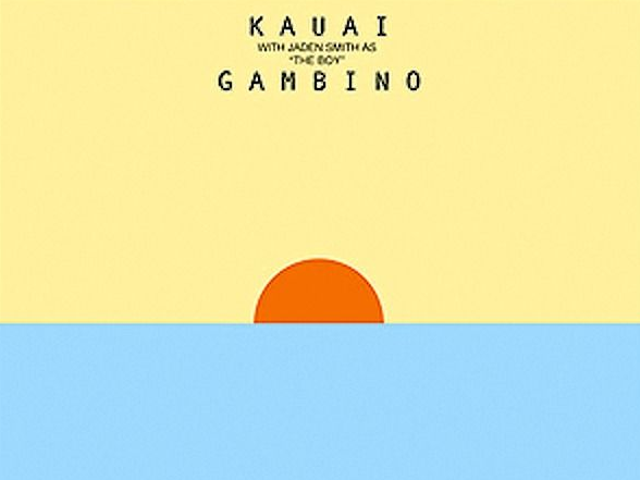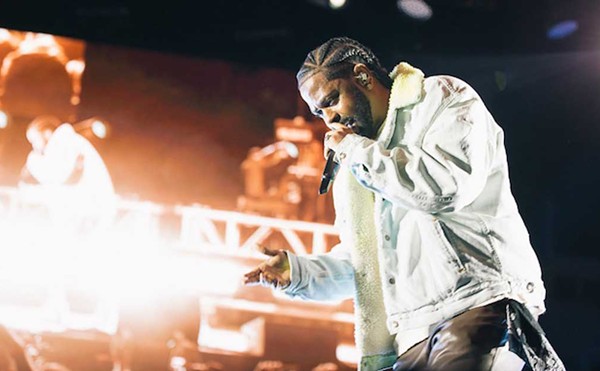Everyone has someone they look up to, but it's rare to be the person everyone looks up, to be respected by musicians and fans all over the world.
Mike Watt approaches the bass more like a drum kit than a guitar, not in a slap bass fashion but with the style of a jazz drummer exploring the bounds of his kit. His distinguished style can be heard on countless recordings that span nearly every genre of music. Still, Mike Watt is the epitome of punk at its core — do what you wanna do and play what you wanna play, regardless of what anyone thinks.
In 1980, Watt, along with friends D. Boon and George Hurley, started the highly influential punk band the Minutemen. But the band was struck by tragedy in 1985 when D. Boon was killed in a car accident. To work through his depression, Watt carried on with Hurley and started Firehose.
When the opportunity presented itself to play bass in the Stooges, Watt's mind was blown by the possibility of playing in the reunited band. After all he's accomplished, Watt has no intention of relenting, with releases from the Black Gang, Dos, Cuz, Big Walnuts Yonder, and a project with Jim O'Rourke in the future.
Since early September, Watt has been touring in support of il Sogno del Marinaio's latest album, Canto Secundo. The tour hits the Magic Stick on Sunday, Oct. 4, and Watt was thrilled to chat about the old days and what's to come.
METRO TIMES: With Canto Secundo, it's evident that you've grown as a band.
MIKE WATT: We'd only been together for three or four days when we made the first record. This one, we spent eight days, instead of two and a half, just us three with Bruno Germano recording it. He put the studio in this old barn outside of Bologna, and there was a farmhouse next to it. I never left! These guys cooked for me. The whole thing was there. I never left the premises. It was scary; I didn't want to let 'em down, wanted to play good for 'em. I'm really proud to be with these two guys on that record.
MT: After so many years of touring, how do you approach it these days?
WATT: I'm really into having the boat in ship shape for tour, and I'm bringing two guys from Italy who have never really done a tour of the U.S. before. I've got to get them back to Italy. When I go on tour, the number one priority is getting my guys back safe. Number two, it's playing good for the people who work all week to come see you play, then three, four, five, six ... whatever, maybe I can get some good pictures, or good chow. I think it's going to be my 65th tour. In Firehose days, there would be three tours in one year. Firehose did, I think, 20 tours in seven-and-a half years. It was in a very tough part of my life. I owe Edward and Georgie much for helping me through all that. For something like that, maybe playing was the best thing for me to do, playing for people. Me and D. Boon, we came from arena rock. We didn't even know about clubs until punk. We really dug it. It's funny because later in my life — and with Minutemen some too — we did play bigger pads, but a lot of our punk was in reaction to arena rock [laughs]. In some ways, I feel much closer to vaudeville than I do to arena rock. When people ask me about the old days, I say, "Yeah, the old days of punk was a lot about people and making their own parallel universe," because you didn't fit into the popular one. It's a pretty human thing to do. Walt Whitman, Leaves of Grass, 1855, he put that out himself. [laughs] So, DIY is at least 165 years old.
MT: When playing with Andrea and Stefano, did you teach them about jamming econo?
WATT: Yeah. Your average cat ... it's kind of tough to be a musician there. They're in like four or five bands each, and there's 21 years' difference, so there's a gap that way. Actually, we're both from the punk scene, just a couple of dickheads [laughs]. So, in a way, I didn't have to enlighten them to the things econo. These guys went to school, too, for music and art. They're trained guys, but they come from pretty modest backgrounds. I know they work incredibly hard. A lot of these musical situations — even going back to D. Boon — they're kind of by accident. I've never really had an audition, or put an ad out for something.
MT: Firehose is a good example of that ...
WATT: Yeah, or D. Boon jumping out of the tree. Edward had to find me. I didn't know you had to pay money to keep your number out of the phonebook. That's how Edward found me. Edward just came, which was pretty incredible. I thought it was pretty balls-out. That really impressed me. I immediately wanted to do a band with him. Even the way il Sogno del Marinaio started, Stefano writes me an email: "Hey, will you play a festival with me and my drummer buddy?" They're lucky the way they get happenin', but when they do get happenin', I gotta work at 'em just like anything else. Andrea and Stefano, they're kind of used to the idea that most shit doesn't get done for you. You have to make it happen. My experience, the old U.S. punk from the '70s — most people hated it. So that kind of instilled that sort of ethic in you. Also, the idea of just playing whatever you wanted because people were going to hate it anyway. In the old days, me and D. Boon, we split the world up into two categories: fliers and gigs. Recording was just a flier to get people to the gig. Now, I think of recording as more like stuff you leave when you're not here anymore, that people can hear. To get real brutal about it, you could call them gravestones [laughs].
MT: What were some of the experiences you guys went through with people who looked down on you?
WATT: Oh, shit! I got Blank Generation and the sleeve had pictures on it. So I took one of the pictures of Richard Hell and taped it on my bass. This was 1977 and the rockers really hated me for this, just the idea that I would get involved with this movement. I remember one guy saying to me, "I knew you were going to be one of the dudes that got into this shit." [laughs] After a while, it became a line in the sand. It was like, "OK, you win. I'm with these dickheads." When punk first came to us, and we painted on our clothes and stuff, we had to stop doing that after about a year or two because people gave us so much shit. They'd circle around the block and come back to yell at you. We were like, "Well, maybe we're going to keep the punk part up in the head, but let's go dress like high school again." [laughs]
MT: What do you think when your name is used like, "il Sogno del Marinaio with Mike Watt?"
WATT: I really think that weighs more than the names of the actual ingredients. I really found this out ... I mean, I haven't really been bothered by that so much with il Sogno del Marinaio; maybe it's hard to pronounce. I really ran into it with Ballhog or Tugboat. I had to deal with all this stuff about people's names that I never had to deal with before, and I'm not saying it's like that now, but you gotta understand, I feel a little bit for Andrea and Stefano. If they're standing in the shadow, maybe I gotta turn sideways, so there's less shadow [laughs]. I don't feel that way in the band at all. I feel component.
MT: Does that keep you learning?
WATT: Yeah, and I've had a lot of opportunities to tell people what to do with my operas, and you can't learn everything always being the boss. You're always getting your way, and that's not what real life's about, man. Life's about taking turns. People say, "Oh, you have less responsibility." I don't feel that way, because with music, if you give a direction, yeah, there's that responsibility, but if you're taking, there's that responsibility too. I think it's a good thing. Like I said, I've been lucky to play with great cats. What D. Boon called, "They think out loud."
MT: Speaking of who you've played with, is there anybody you've yet to play with that you hope to?
WATT: Bob Mould, an old friend, Grant Hart, both those guys ... maybe one at a time [laughs]. Although, I heard they're talking with each other with Greg Norton too. There might be some Husker, I heard. Something about Bob Mould. I never got to play with Bob and Grant, except this one time, there was a funny, opening act that was created. Bob was the drummer, I was the bass man, and Grant was the lead singer — and I think Dez was on the guitar. It was only in Minneapolis, one gig, Goofy's Upper Deck or something.
MT: When you played with the Stooges, you were wearing coveralls ...
WATT: That was Ig's idea. I actually had four different rounds of outfits with the Stooges. The first one was, from the first phone call, when I was in Tallahassee with my Secondmen, he said, "Mike, would you wear a T-shirt instead of flannel?" and I said, "Yeah, no problem." I said, "What about Levi's and Converse?" and he said, "Yeah, that's strong." I was like, "Whew!" So we talked a lot about clothes and stuff. Then, at the end of the call he says, "Now, look. However we end the songs, that's how we end 'em."
MT: You've dealt with death a lot in your career, first with D. Boon, then with Ron and Scott Asheton.
WATT: Ronnie was the first time I went to a memorial. I went to Ann Arbor to talk, and I read some Walt Whitman. I asked Ig about that, I said, "Ig, is it weird?" because I didn't know what to say. I had never been to one. I didn't go to D. Boon's, and I didn't go to my Pop's. Ig said, "Yeah, it's weird, Mike, but maybe at a time like this it's OK to be weird." He's always been really straight ahead with me. He's never played games. Fuck, even Ig told me, we just got done playing some big race track in England, and he goes, "You know, Mike, we're out there and I feel like a short order cook. I gotta go up to every person and go, 'You want fries with that? You want a shake?'" It's like he's playing for every dude out there [laughs]. That kind of ethic sounds pretty vaudeville to me. The big part of it is what you bring yourself. Someone once told me, "You get a kink in your neck looking up or looking down at people." If you look people in the eye, everyone feels a lot better at the end of the day [laughs]. — mt
— Il Sogno del Marinaio plays Sunday, Oct. 5, at the Magic Stick. 8 p.m. $15. 4140 Woodward Ave, Detroit, 313-833-9700; majesticdetroit.com.





